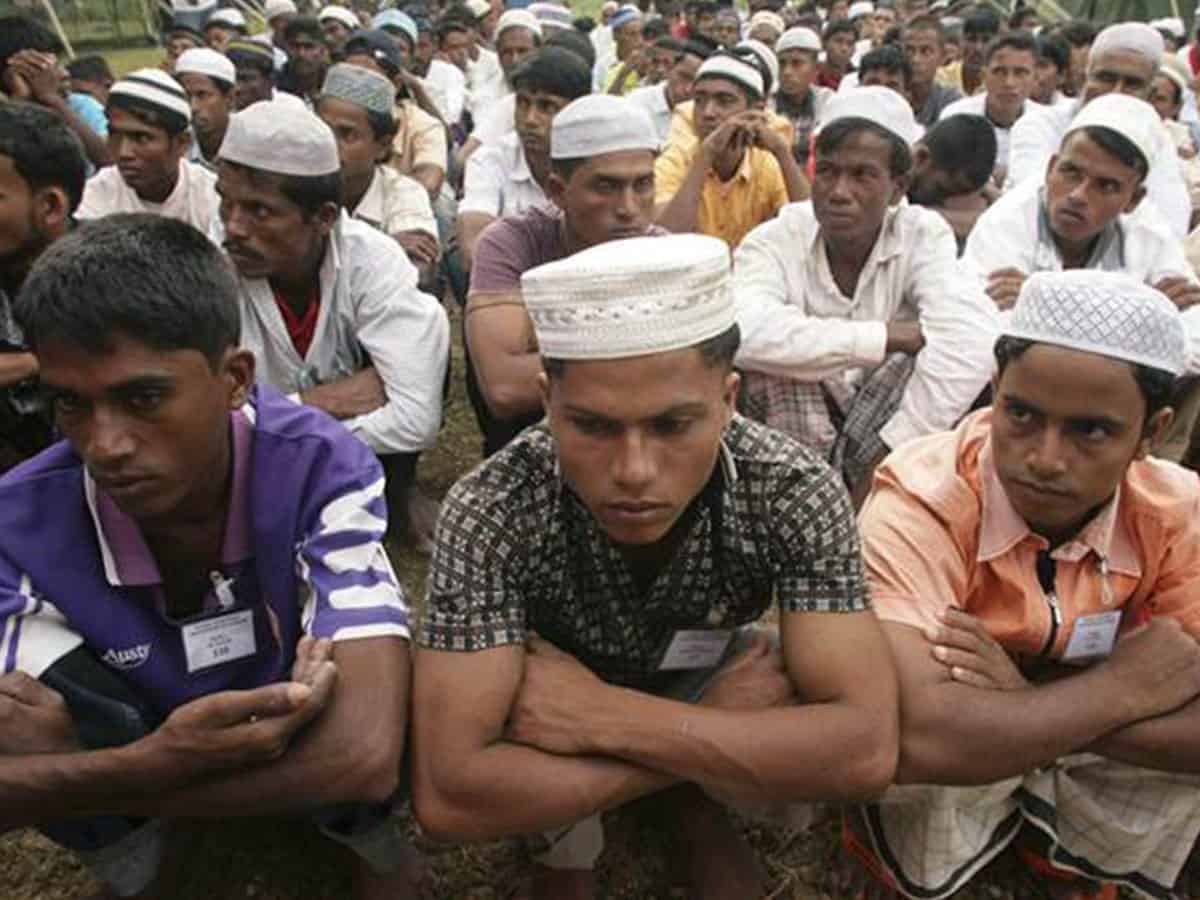Shaheen Nazar
NewDelhi: Noted civil rights activist Ravi Nair, who has been at the forefront of those opposing the Citizenship (Amendment) Act (CAA), sees no link between CAA and the reported cases of conversion from Islam to Christianity by Rohingya and Afghan refugees.
He says such conversions have been taking place for the past 40 years, much before the ruling Bharatiya Janata Party or previous Congress-led government thought of bringing in the controversial legislation.
The number of such conversions is negligible when compared with the size of the foreign refugees in India. “These are frustrated people who see no future in India. Certain fundamentalist Christian groups prey on them with the promise to send them to America or Canada. Mainstream Christian organisations or big churches are not part of this,” the well-known rights defender told Clarion India.
He was commenting on a news report in Economic Times that said CAA had prompted many Afghan and Rohingya Muslim refugees to convert to Christianity so as to become eligible for Indian citizenship. The report also claimed that at least 25 such cases of Afghan Muslims converting to Christianity had been flagged by central agencies as part of an ongoing assessment.
The CAA guarantees citizenship to non-Muslim minorities from Pakistan, Bangladesh and Afghanistan. Myanmar, from where the Rohingyas have fled, is not part of the CAA scheme.
Nair, who is convener of the Alliance Against CAA & NRC, an association of social organisations and civil rights groups as well as eminent individuals opposed to CAA and NRC, said CAA, though extremely objectionable, could not be blamed for this.
He added, “I came across such conversions first time around 1980. Then the conversions involved Iranian and Sri Lankan Tamils, as also Afghans. Of late, Rohingyas have joined the bandwagon.”
According to Nair, this happens because foreign refugees face plenty of problems in India such as non-availability of work permits or their children being denied admission to professional courses.
“They get frustrated. At this time, Indian pastors representing American and German fundamentalist Christian organisations prey on them like vultures. They make false promises of helping them migrate to the West.”
Nair heads an NGO called South Asian Human Rights Documentation Centre. He is one of the two main petitioners in the apex court against the government decision to deport Rohingya refugees to Myanmar where they face threat to their life and property.
Lawyer-activist Prashant Bhushan is also assisting the court in this matter. When the petition was filed in 2017, the ruling BJP and its allied organisations made Rohingya refugees an emotive issue presenting them as a threat to India’s internal security. He says Rohingyas are one of the most persecuted minorities in South Asia. Of late, they have stopped coming to India which they find unwelcoming.
While Afghan refugees are in India since 1979 when the Soviet army entered Afghanistan triggering a civil war in the country, Rohingyas started coming to India since 2011 when the ruling Myanmar army launched a campaign to annihilate its Muslim minority.
Bulk of Rohingyas lives in Delhi where their estimated number ranges from 20,000 to 30,000 depending on harvesting seasons when they go to villages in neighbouring states. Muslim-majority Nuh in Haryana hosts another 10,000. Jammu is yet another city which used to host a big number of Rohingyas, but thanks to a communally-motivated campaign, their estimated number has come down to less than 5,000.
The kind of hate campaign that the BJP and its associates carried out after Narendra Modi became Prime Minister in 2014 drew international criticism to India. Nair says it was one of the reasons why the Sangh Parivar and the government stopped speaking against Rohingyas.
Nair says Rohingyas are extremely poor people who do the kind of jobs which Indians don’t like to do. “They pick up garbage and do sewage cleaning. They are exploited by everyone. Even the cleaning municipality staff who earn up to Rs 40,000 hire them to work on their behalf and pay them Rs 5,000. They are content with this because this is the only job they get.”
Nair, who closely monitors Rohingya refugees in India, said those who forced them out from Jammu are now calling them back. They were the source of cheap labour in construction and sanitation industries. Their departure from Jammu has created a crisis,” he added.

